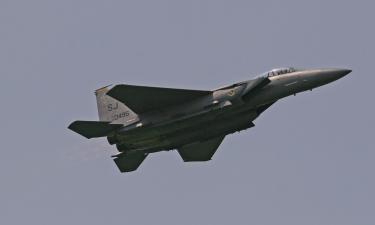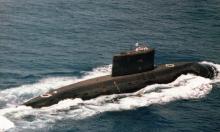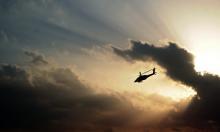Fifth Column Among Hostages Caused the Gas Attack Decision. Part One
The use of gas during the storming of the theatre in Moscow: opinions, estimations, suggestions
Since the theater storming in Moscow, the liquidation of the Chechen terrorists, and the release of the hostages, the Russian mass media have actively discussed to what extent it was expedient to use the debilitating gas for the storming. It is quite natural that the situation has drawn such great attention. And it is clear that various estimates and opinions about the problem contradict each other.
However, those who blame the operative headquarters and Russian special forces troops for the use of the gas and say that it was a grave mistake and even a crime, still make up the minority, in our opinion. The majority of observers, specialists, politicians, and public figures support the actions of the operative headquarters, the soldiers from the Alpha, and Vympel special groups; they say that the way the release operation was carried out was the only way possible at the time.
Indeed, the theatre was packed with explosives; the female kamikazes threatened they would blow the building up if any attempts to storm the building were taken. Moreover, there were some accomplices of the terrorists who remained in the auditorium under the guise of hostages. These people were closely watching the atmosphere among the hostages; in case of any danger, they were ready to inform the terrorists or even press a secret button themselves to blow the theatre up.
The Russian newspaper Nezavisimaya Gazeta (Independent Newspaper) published information provided by “a representative of one of the special services” that “the fifth terrorist column among the Nord Ost spectators was even more dangerous than the shakhids themselves.”
According to the man, “people at the head of the release operation discovered that a secret group of terrorists connected to the terrorist leader Movsar Barayev had bought tickets for the musical and entered the auditorium under the guise of spectators. The group had two important tasks. The first was to control the atmosphere among the hostages, inform the leader of any attempts to escape, and also provoke the people. Second, they were to cover the female suicide terrorists who were to blow the building if it is stormed. The under-cover group consisted of 4-6 people of Slavic appearance. These people perfectly knew the theatre building from inside and the places where explosives had been laid. People who worked for the plan of the special operation were especially apprehensive about “the fifth column,” as it was actually impossible to locate them. That was the reason why it was decided to use a debilitating gas for the attack.”
Under the extreme conditions of the whole hostage situation in the Moscow theater, the neutralization of all the kamikaze terrorists at once was the only way to rescue the hostages. What could else could have been done? It was decided to relase a debilitating gas into the auditorium before the storming of the building.
Negotiators, as we know there were famous people among them (head of the Russian Chamber of Industry and Commerce Yeugeny Primakov and Russian singer, Duma Deputy Joseph Kobzon), told journalists that the decision to start the storming was the only decision possible. By the time the operation started, the terrorists grew extremely aggressive, broke all previously achieved agreements, and started killing the hostages. Yeugeny Primakov, one of the last to negotiated with the terrorists, said on Russia’s popular live TV program Vesti Nedeli: “It was a very tense conversation, like talking to a blind or a deaf man. I find no words to characterize the terrorist leader Barayev, a nervous man who said: ‘I swear by the Allah’s name, you don’t understand that I’m programmed; I will settle all problems tomorrow. Starting with the noon tomorrow, we’ll begin killing people.’ Then I told him that being an Orientalist myself, I knew the Quran probably better than he did. And the Quran says the man cannot fight with women and children. And Barayev all the same demanded that Russian troops immediately withdraw from Chechnya. Such was our conversation; any attempts to bring him to reason failed. Barayev demanded that a presidential representative come and talk with him. And he insisted that they would start killing people the next day at noon. He said: ‘Tomorrow, I will meet Allah. I am afraid of nothing.’ I was the last with whom the terrorist leader talked. My opinion is that he was a villain with no human traits at all.”
Yeugeny Primakov gave his personal estimate to the special operation. He said: “Together with Moscow Mayor Yury Luzhkov, I met with the president. I am sure that the president wanted to save as many people as possible. My opinion is that the decision to storm the theatre was undoubtedly sound. There were hundreds of hostages in the closed room; the terrorists provided all conditions to blow the building up. There were probably two ways-out: either to run the minimum risks for the rescue of the people and to disable all the people, the terrorists and the hostages, or to wait. It was impossible to sort out people under those conditions. At the same time, it was impossible to wait, as the terrorists threatened they would start killing people. No doubt, it was impossible to wait longer. I am sure the special services did everything impeccably. It was correct to allow professionals to settle the problem. This positive fact should appease many people. My acquaintances who participated in liquidation of terrorists in the Russian city of Budennovsk in 1995 say that special services had to deviate from their plans in order to fulfil the commands of the political leadership. That is why many mistakes were committed: the number of victims was great, and the terrorists managed to escape. This time, the situation was quite different. The special services demonstrated what they could do. This may serve a warning for many terrorists.”
According to provisional information, a debilitating gas was used for the theater attack in Moscow, which experts consider as incapable of affecting the psychological condition of the people.
Nezavisimaya Gazeta published an interview with well-known psychiatrist from Moscow Mikhail Vinogradov, who had participated in the training of special forces soldiers. The doctor says that several people died probably not because of the gas. “That was the cause of several factors: the people had no food, water, and medicines for many hours. As a result, all of them were in stress and their chronic diseases became acute. The acid-base equilibrium of the people shifted as a result of the stressful situation.” In Vinogradov’s words, the gas is practically harmless for healthy people. “The treatment is simple, which means dis-intoxication, taking medicines, and long sleep. However, if people suffering from asthma or heart diseases undergo a gas attack, the consequences may actually be very serious. Head anaesthetist of Moscow Yeugeny Yevdokimov says that all registered cases of death were not due to the direct effects of gas.
Sergey Stefanov PRAVDA.Ru
To be continued
Translated by Maria Gousseva
Read the original in Russian: https://www.pravda.ru/accidents/10179-moscow/
Related links:
Subscribe to Pravda.Ru Telegram channel, Facebook, RSS!




